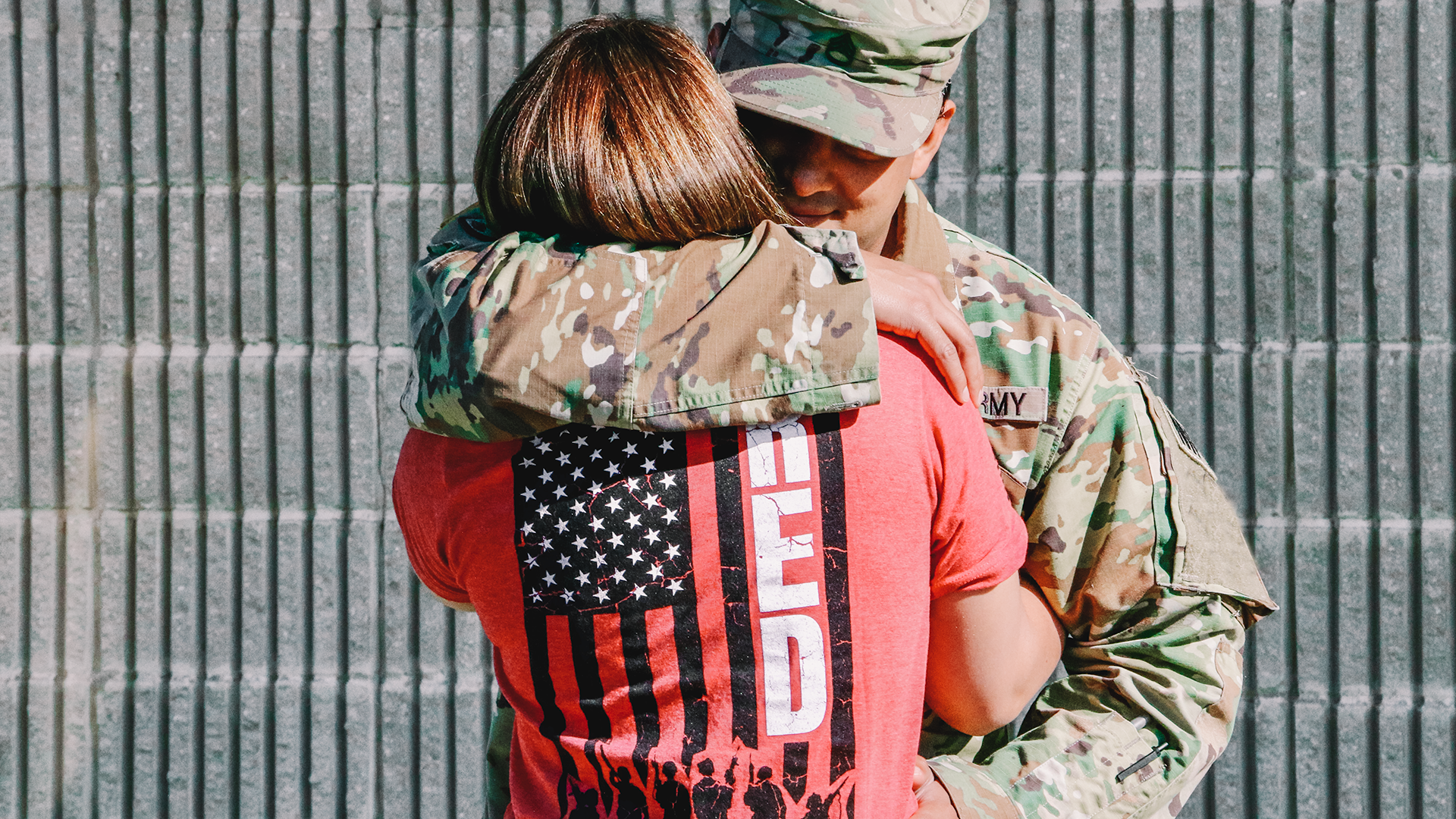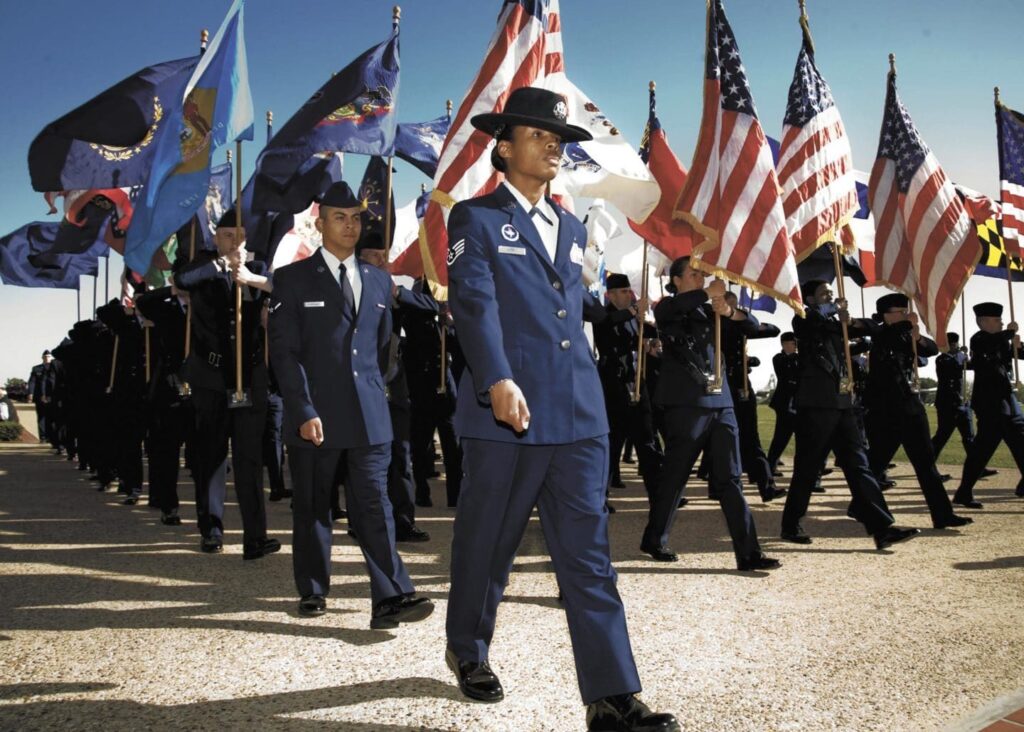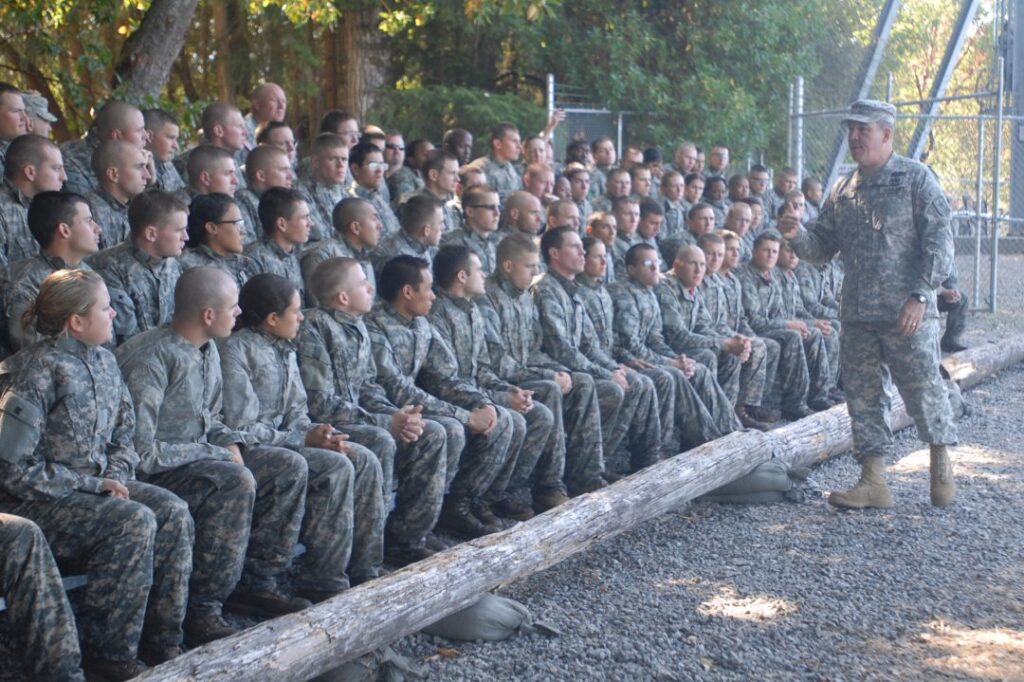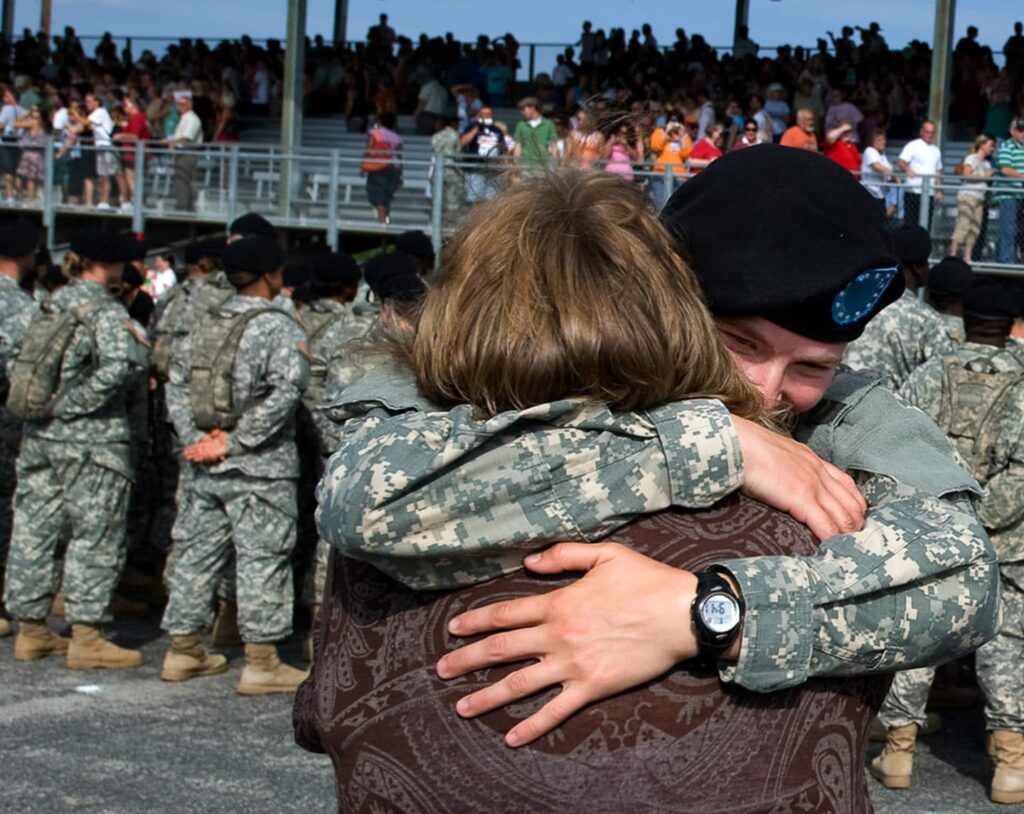Prior to my soldier’s first deployment to Afghanistan, he went through pre-deployment preparedness. There were many legal and financial matters to address.
While my soldier was gathering information and filling out forms, I realized that I wasn’t prepared at all.
I wasn’t prepared emotionally to help my soldier with a will, power of attorney, and other legal paperwork. The more I learned about pre-deployment preparation, the more I understood that strength and resilience were my best allies.
The most important thing I did to support my soldier was to put those strong emotions aside and help as much as possible with important information.
Staying informed will help you to support your soldier.

What to Expect during Pre-deployment Preparedness
Your soldier will go through many pre-deployment meetings and have a checklist of items prior to leaving for deployment.
If your soldier is married, their spouse will also be included in mobilization meetings to jointly take care of paperwork.
Either way, you can help by having information readily available and helping get a plan together.
Get Informed
Learn as much as possible about when your soldier is leaving, how long deployment will last, and where they will be located. Staying informed will help ease your mind.
Some information may be withheld due to security issues.
Emergency Preparedness
Have contact information onhand. Your soldier will need your contact numbers as well as other family members, in case of emergency. This includes email, phone, and home address.
If your soldier is married, gather contact information for their spouse’s family.
Gather information about how to contact your soldier once they are deployed. You’ll also want contact information for military officials. You may need to contact your soldier if a home family emergency occurs.
In a family emergency, contact the American Red Cross. They can help reach your soldier in case of an emergency. You’ll need to have information about the emergency and the following about your soldier:
- Full legal name
- Rank
- Branch of service (Army, Navy, Air Force, Marines, Coast Guard)
- Social Security number or Date of Birth
- Military unit address
- Information about the deployed unit and home base unit (for deployed service members only)
Learn about American Red Cross Emergency Communications.
Communications Plan
Prior to every military deployment, our family had a communications plan ahead of time. We were able to get deployment addresses ahead of time to send letters and packages.
Will your soldier have Internet access and email? Is cell phone service available? These are questions to get answered so you all know your options for communication and which method works best.
Talk with your soldier about what type of technology devices they’ll take along to best help make these decisions. Help your child with communications solutions based on what they’ll have available.
For my soldier’s Afghanistan deployment, he had Internet access and we agreed on email for our main communication. For a South Korea deployment, we used phone apps that worked with Internet access so as not to rack up phone charges.
Many messaging apps include text messaging, video chat, and phone calls. Test some of these methods out ahead of time and agree on which ones you’ll use while your soldier is away. You should also agree on how often you can expect to communicate.
Keep in mind there may be times when your son or daughter cannot communicate. They may be out in the field, on a mission, or in a communications blackout.
Paperwork and Finances
There’s a lot of paperwork that needs to get organized prior to deployment. Admittedly, this made me most uncomfortable.
Discussing my soldier’s last will and testament, final wishes, and power of attorney, were of greatest importance. Staying strong and helping your soldier through this paperwork is more important than your feelings about it.
Properly filled out legal paperwork will eliminate frustrations later if something should happen. I know, these are difficult things to consider or even think about but your soldier will be grateful to have your support for this paperwork.
Here’s a list of things your soldier needs to do. There may be more items on your soldier’s checklist. Get as much information from your soldier as possible in case of emergency or if you need to step in for other reasons.
If something goes wrong with a credit card or bank account during deployment, it may be difficult for your soldier to take care of it. I’ve stepped in to make calls and sort out problems while my soldier was deployed. Being prepared for anything will be a great help.
- Get a copy of the pre-deployment checklist and help your soldier get all the items completed.
- Discuss power of attorney (POA) with your soldier should you need to help with any items after deployment. The POA is used to designate another person to conduct business on their behalf in their absence.
- Notify credit card companies of the deployment.
- Get a record of accounts that are paid on a regular basis. Put them on autopay if possible.
- Create or update a will. Get a copy and be aware of your soldier’s last wishes. Have an open discussion about what to put in a will. If your soldier is married they’ll likely have this discussion with their spouse. This may be an emotional conversation but you must be clear about final decisions should something happen.
- For single soldiers, you can get a bank account in their name and your name. It will be easier for you to help solve problems if they occur.
Family Readiness Group (FRG)
During my soldier’s deployment, the FRG was my lifeline to important information. The FRG was created to communicate information about your soldier’s unit to family members.
Usually, there’s a telephone or email roster chain of concern to communicate important and correct information to family members. Sometimes, you may hear information about your soldier’s unit or location from other sources. You may be tempted to contact your soldier.
The best thing to do is get the correct information from the FRG instead of attempting to contact your soldier about said information.
This is one of the best ways to support your soldier during deployment, that is, not asking them questions about hearsay. Get the information from the FRG instead.
Ask your soldier how to get on the unit’s FRG roster prior to deployment and then make contact with the FRG leaders.
Your Soldier will Appreciate your Help and Support
It can be challenging or uncomfortable to help your child with their last will or power of attorney. I know it was for me.
This is a time when your child may need your help and support more than ever. There’s so much to do before deployment and paperwork can seem overwhelming.
Grasp onto your strength and resilience as you traverse this pre-deployment paperwork with your child.





